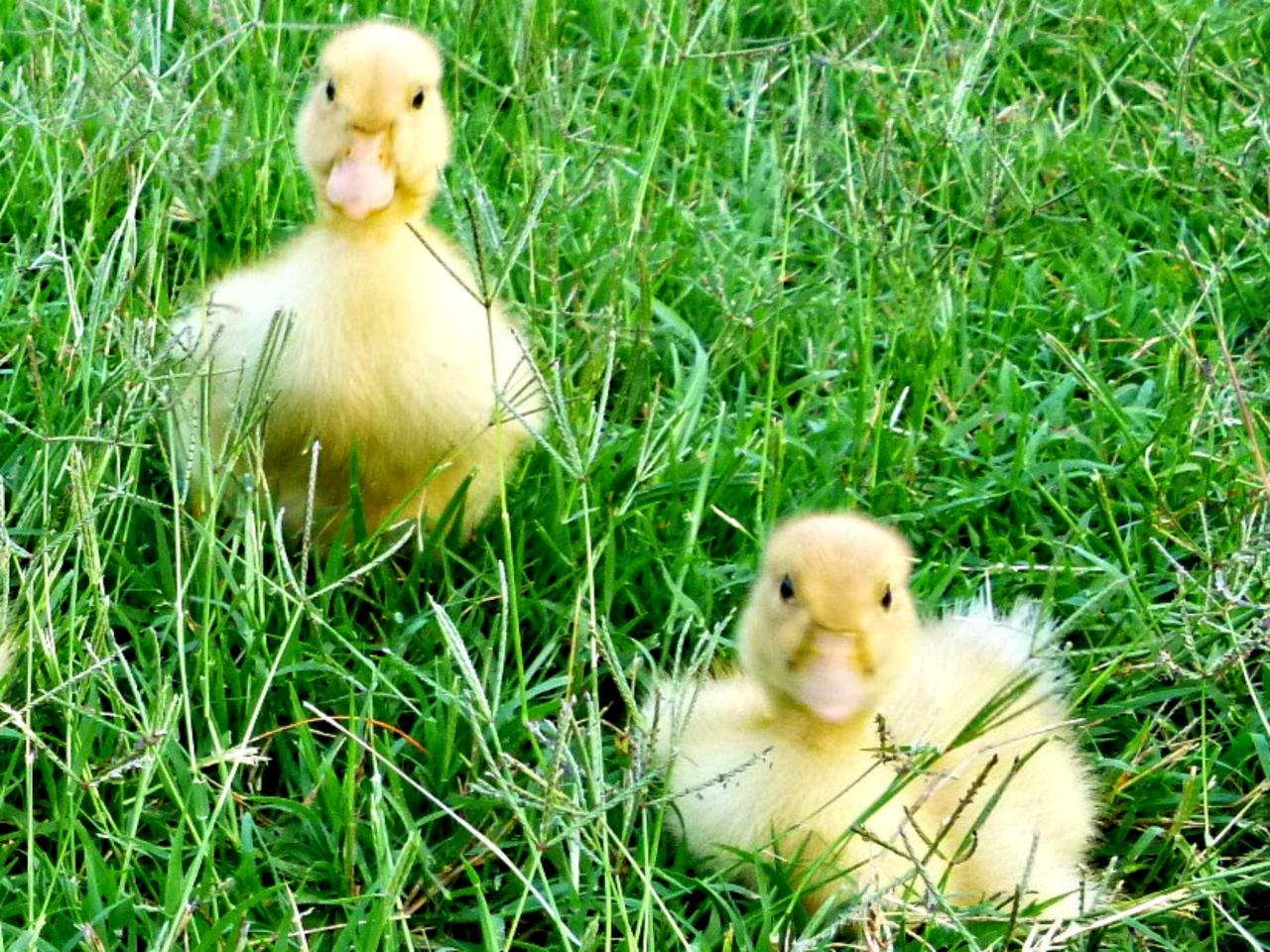
A Comprehensive Guide to Caring for a Baby Duck
Baby ducks, also known as ducklings, are adorable and captivating creatures that require specialized care to thrive. Whether you’ve stumbled upon an orphaned duckling or decided to raise one as a pet, understanding their unique needs is crucial for their well-being. This comprehensive guide will provide you with all the essential information you need to care for a baby duck, ensuring its health, happiness, and proper development.
1. Housing and Environment
- Brooder: For the first few weeks of life, ducklings require a warm and secure environment called a brooder. This can be a cardboard box lined with soft bedding, such as towels or shredded paper. Ensure the brooder is large enough for the duckling to move around comfortably.
- Temperature: Ducklings are highly susceptible to cold, so maintaining a consistent temperature of 90-95°F (32-35°C) is essential. Use a heat lamp or heating pad placed at one end of the brooder to create a warm zone where the duckling can retreat.
- Bedding: Keep the brooder clean and dry by changing the bedding regularly. Avoid using materials that can retain moisture, such as straw or hay, as they can promote bacterial growth.
- Water: Provide a shallow dish of fresh water at all times. Ensure the water is deep enough for the duckling to dip its beak but not so deep that it can drown.
2. Nutrition
- Diet: Ducklings require a high-protein diet specifically formulated for their needs. Commercial duckling starter feed is readily available at pet stores and should be the primary source of nutrition.
- Feeding Schedule: Feed ducklings small amounts of food frequently throughout the day. Start with 1-2 tablespoons of feed every 2-3 hours and gradually increase the amount as they grow.
- Water: Fresh water should be available at all times. Ducklings may also drink from the same water dish they bathe in, so ensure it is clean and free of debris.
3. Hygiene and Health
- Bathing: Ducklings love to bathe and should be given the opportunity to do so daily. Fill a shallow dish with lukewarm water and let the duckling splash and play. Avoid using soap or detergents, as they can irritate their skin.
- Grooming: Regularly check the duckling’s feathers for any dirt or debris. Use a soft brush or damp cloth to gently remove any foreign materials.
- Health Monitoring: Observe the duckling closely for any signs of illness, such as lethargy, loss of appetite, or unusual discharge. Contact a veterinarian immediately if you suspect any health issues.
4. Socialization and Exercise
- Companionship: Ducklings are social creatures and thrive in the company of other ducks. If possible, keep multiple ducklings together to provide them with companionship and stimulation.
- Exercise: Ducklings need regular exercise to stay healthy and happy. Provide them with a safe outdoor space where they can explore, swim, and forage. Supervise them closely during outdoor activities.
5. Growth and Development
- Growth Rate: Ducklings grow rapidly during the first few weeks of life. They will typically double their weight within the first week and continue to grow steadily until they reach adulthood.
- Feather Development: Ducklings are born with downy feathers that gradually transform into adult feathers. The process of feather development takes several weeks and is complete by around 8-12 weeks of age.
- Independence: Ducklings become increasingly independent as they grow. They will start to explore their surroundings and forage for food on their own. By around 6-8 weeks of age, they will be ready to transition to a larger outdoor enclosure.
6. Transitioning to Adulthood
- Enclosure: As ducklings mature, they will require a larger outdoor enclosure with access to water, shelter, and foraging areas. Ensure the enclosure is predator-proof and provides ample space for the ducks to move around freely.
- Diet: Once ducklings reach adulthood, they can transition to a diet of commercial duck feed, supplemented with fresh fruits, vegetables, and insects.
- Breeding: If you intend to breed your ducks, it is important to introduce them to a compatible mate and provide them with a suitable nesting area.
Additional Tips
- Handle with Care: Ducklings are fragile creatures and should be handled gently. Support their bodies and avoid squeezing them too tightly.
- Avoid Overcrowding: Keep the brooder or enclosure clean and spacious to prevent overcrowding and the spread of disease.
- Provide Enrichment: Offer ducklings toys and activities to stimulate their minds and keep them entertained.
- Be Patient: Caring for a baby duck requires patience and dedication. They may not always cooperate, but with consistent care and attention, they will thrive and bring you years of joy.
Conclusion
Caring for a baby duck is a rewarding experience that requires a deep understanding of their unique needs. By providing them with a suitable environment, proper nutrition, and attentive care, you can ensure their health, happiness, and proper development. Remember to handle them with care, socialize them early, and monitor their growth and well-being closely. With patience and dedication, you can create a fulfilling life for your feathered companion.
